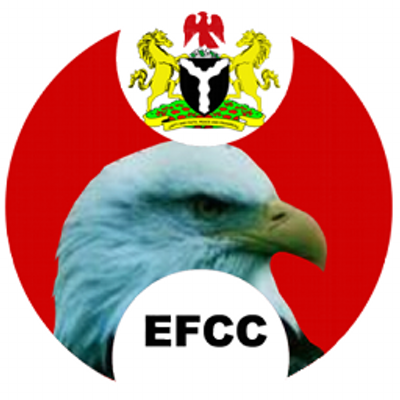The attention of the Economic and Financial Crimes Commission, EFCC has been drawn to the speech made by Paul Usoro, SAN, president of the Nigerian Bar Association, NBA at the Association’s National Executive Committee, which held on December 6, 2018, in Abuja.
Indeed, the EFCC had invited Usoro in June this year, to explain his role regarding the inflow of N300 million (Three Hundred Million Naira) from the Akwa Ibom State Government’s Account into the account of Paul Usoro Chambers, PUC. Usoro was also questioned on the aggregate inflow of N1, 110,000,000 (One Billion One Hundred and Ten Million Naira) from the state government’s account into the bank account of PUC.
Under interrogation, Usoro had claimed that the various sums of money received from the Akwa Ibom State Government, under the administration of Gov. Udom Emmanuel, were payments for “legal fees” to him and other “eminent members of the Inner Bar and a host of other members of the Outer Bar that I had engaged to work with me in respect of the Election Petition matter” involving the governor.
Deadly Violence in Cross River LGA: President Buhari Expresses Concern, Calls for Calm
Usoro is further quoted to have stated that the payments were “independent transactions and that the Akwa Ibom State Government’s payments-on-account were in respect of my Firm’s professional services to the State, while the payments to the senior counsel were made by me for and on behalf of Gov. Udom Emmanuel, at his request”.
Whipping up sentiment, the learned silk then raised the issue of “client-lawyer privilege”, arguing that “judicially and historically”, the “issues of fees, as between a lawyer and his client, is a matter of privilege”.
While we do not intend to engage the learned silk on the pages of newspapers, on media landscape, the EFCC wishes to state that it does have regard for the Rule of Law and in this regard, he said “client-lawyer privilege”, but it should be stated that what is at stake, is the legitimacy of the source of the money used for the various payments.
The learned silk further accused the EFCC of playing the role of “Auditor and/or Regulator of Legal Fees”. This is definitely not the case. It is worth reiterating that while the EFCC has “Special Powers” to investigate suspicious financial transactions, Section 18 (d) of the EFCC Establishment Act 2004, empowers the Commission, to investigate and prosecute any person, who “engages in the concealment or disguise of the true nature, source, location, disposition, movement, rights, with respect to or ownership of property knowing such property is derived from any offence referred under this Act commits an offence”. From all intent and purposes, payment of over N1.4 Billion to Usoro from the accounts of Akwa Ibom State Government for an unofficial transaction is nothing short of criminal diversion of public funds.
From the foregoing and in line with the mandate of the Commission, the SAN, definitely has questions to answer before a competent court of jurisdiction on the allegation of money laundering and no amount of intimidation and or razzmatazz can stop the Commission from carrying out a legitimate assignment of investigation and prosecution of financial impropriety.
The act of making such humongous payment of over a billion naira to an individual from state vault raises a reasonable suspicion of money laundering. This may amount to a disservice to the people of Akwa Ibom state, and we shall not rest on our oars and allow such financial crime to continue unabated. Paul Usoro, SAN, surely has a case to answer.
The allegation of Usoro that the effort of the Commission at collaborating with the National Judicial Institute, NJI on capacity building was an anomaly is likened to a drowning man who holds onto a straw for survival. Let it be known to Usoro that agencies like the Nigerian Deposit Insurance Corporation, NDIC; Nigerian Institute of Bankers, NIB; the Institute of Chartered Accountants of Nigeria, ICAN; and the National Communication Commission, NCC are among the many governments and organised bodies that have been having such collaboration with the NJI on capacity building.
While we do not intend to engage the learned silk on the pages of newspapers, or the media landscape as the case might be, it should be stressed, that what is wrong is wrong.
Tony Orilade
Ag. Head, Media& Publicity
7th December 2018




